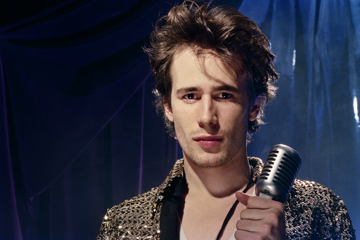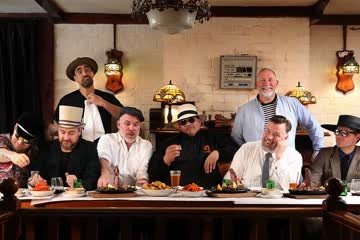Aus Music Roundtable Reveals Industry Left In The Dark As COVID Continues To Decimate It
A panel of experts detail the grim reality of Australia’s music industry as the country approaches the 18-month mark of its COVID-19 crisis.
Australia’s live music industry has been crippled due to ongoing travel and venue restrictions that largely stem from the country’s botched vaccine rollout.
Speaking with The Green Room podcast host Tiana Speter for a two-part COVID-19 special looking at the music industry a year and a half into the pandemic, a slew of insiders said that we’re now at an all-time low.
Stephen Wade, CEO of Select Music and Chairperson of ALMBC, said things are “much worse” now than they were in 2020.
“I’ve done my very best to remain as positive as I possibly can,” he said.
“The differences this time around are that we don’t have anything like JobKeeper…we had significant money coming in to look after our staff.”
Constant rescheduling due to unpredictable border closures and snap lockdowns also means that many people are having their workload increase dramatically.
Don't miss a beat with our FREE daily newsletter
“We’ve again had to cancel everything, reschedule everything, losing shows, but this time around, there’s no future. There’s no hope,” Wade said.
“Our whole industry is sitting here right now, still with no idea when we go back to 100%.”
“That was heartbreaking."
Annabelle Herd, who took on the role of CEO at ARIA this past February, said she felt like there was “a real sense of optimism” at the start of the year, and that most thought that by October/November enough people would be vaccinated that summer music season would be “raring to go”.
“But that is so far from where we are right now,” Herd said, noting that confidence in recent months had been shattered due to frequently lockdowns and the Bluesfest cancellation back in April, the latter of which was described as a “watershed moment” at the time.
“After these lockdowns, I think there’s a real sense of feeling overwhelmed; what do we do? What on Earth are the next six months going to look like from today?”
Back in April, Bluesfest was shut down a day before its rescheduled Easter event was set to kickoff, which sent shockwaves across the industry.
“That was heartbreaking,” Bluesfest Festival Director Peter Noble told Speter.
“Heartbreaking for our industry, and of course for us, because the confidence went out.
“How do you put a show on when the Government can close you down the day before? There must be good, solid reasons to close events down. We’ve lost a fortune, and it’s just the way it is.
“However, you just have to be confident. You either go, ‘I’m going to give up,’ or you’re going to wade it out, see what happens, we’re going to do virtual events or whatever, but there is nothing like live music.
“There is nothing to compare with live music. There is nothing that is a facsimile of live music, that can equal it. You know, it’s the experience it’s being there, it’s hearing the best talent in the world.”
The overwhelming consensus is the bungled vaccine rollout is the biggest issue the industry is up against when it comes to things returning to some sense of normalcy.
“There’s definitely just so much frustration."
“We are paying a huge price for the fact that the purpose-built quarantine was never set up, and the vaccine rollout has just been so unbelievably slow,” Shadow Minister for the Arts Tony Burke said.
“Last year so many people did it really hard, and particularly in Victoria people did incredibly hard work and a heap of sacrifice thinking that it would help us get to the other side.
“We needed the Federal Government to organise the vaccines and to get it done. They didn’t - and now Sydney is going through something that may end up being worse than what Melbourne went through last year.
“It’s a more virulent strain, and it spreads like wildfire, but it’s the exact same vaccine to deal with it.
“Maybe if I put it this way: it never occurred to me last year that I’d be turning on the TV, watching gigs in Europe and America, and that they would somehow end up in front of us even though last year it looked like we were doing everything right. And it all comes back to that vaccine rollout and not having purpose-built quarantine.”
Watching other countries return to a new normal is “frustrating”, especially for artists and their team with an international presence, like Melbourne singer-songwriter Alex Lahey.
“There’s definitely just so much frustration,” Lahey said.
“We’re watching our peers overseas kind of get back to touring and kind of going back to what seems like a normal day to day life as an artist.
“And yet, we’re still sort of waiting to get our communities and country and states and borders back to a place where we can have a bit more freedom of movement and freedom of opportunity as well, as artists.
“So, yeah, just overall pretty frustrating, and I think we’re all getting a little bit impatient.”
Maggie Collins, Executive Director of the Association of Artist Managers, also said “things are so much worse now for the industry compared to last year”.
“We thought we had a plan, we thought we were on our way to something - to salvation. Then, it’s gone backwards completely, you know?" she said.
“The virus is shutting down multiple different states, just continues to wreak havoc, and NSW is going to be locked down for another four weeks or at least Sydney is.
“I think we’re a bit more fit, like, we understand the situation, but we’re getting really tired.
“It’s dire. It’s really dire: there are lots of people out there who I’m really concerned about - their mental health and how much they’re working and not getting paid… It’s really hard.
"It’s pretty grim out there."
Splendour and Secret Sounds Group Co-CEO Paul Pittico added: “One of the big differences between now and then - back then there was a lot of consumer empathy, and I think audiences that love music really wanted to support music and were hanging onto their tickets,” he said.
“But obviously to be a year and a half, coming up to two years potentially by the end of the year - getting people to hang on to tickets is a difficult thing.”
Pittico also said that while the music industry is “quite resilient” and “has been very strong”, that “there’s a limit to what everyone can take”, especially when things are “potentially worse than we were right at the beginning”. Mental health is a real concern right now.
“All the implications of the businesses closing: mounting debt and, you know, there’s no more reprieve from the banks, there’s no more leeway being given by landlords… it’s all mounting to this perfect storm for a lot of businesses and you’re really seeing that since the March 31st cutoff of JobKeeper that trend has just been a downward one.
“And thoroughly just topped off by the recent lockdowns everywhere and the Delta variant. Not to be, you know, overtly gloomy about it, but it’s certainly - I find for me personally and for everyone I speak to in my business - the most challenging time we’ve had since the beginning.”
Oztix CEO Brian "Smash" Chladil said it was “more demoralising than it was last year”.
“It’s worse now than it was last year, because at least last year there was a sense that by the year's end it’d be over,” he said.
“It’s all compounded to create a really dark place for the music industry - I wish I didn’t have to say that, I try and generally be a positive person, but unfortunately it’s pretty grim out there for a lot of our colleagues.”
The Green Room COVID-19 special also features Adrian Collette (Australia Council CEO), Chris O’Hearn (Management & PR Company Thrillhill Music), Clive Miller (CEO of Support Act), Dean Ormston (CEO of APRA AMCOS), Emily Ulman (Isol-Aid Festival Managing Director, Brunswick Music Festival Programmer), John "JC" Collins (Owner of The Triffid, Co-Owner of The Fortitude Music Hall), Nicholas Greco (Director of Untitled Group) and Paul Fletcher (Minister for the Arts).
You can listen to both episodes below, on Spotify and Apple Podcasts, or wherever you listen to podcasts.









